The Little Girl Who Was Taught by Experience Read online
Produced by Heather Clark and the Online DistributedProofreading Team at https://www.pgdp.net (This file wasproduced from images generously made available by TheInternet Archive)
THE LITTLE GIRL WHO WAS TAUGHT BY EXPERIENCE.
BOSTON. BOWLES AND DEARBORN, 72 WASHINGTON STREET.
Isaac. R. Butts and Co. Printers. 1827.
District of Massachusetts, _to wit_:
_District Clerk's Office._
Be it remembered, that on the nineteenth day of June, A.D. 1827, in thefifty-first year of the Independence of the UNITED STATES OF AMERICA,_Bowles and Dearborn_ of the said district, have deposited in thisoffice the title of a book, the right whereof they claim as proprietors,in the words following, _to wit_: "THE LITTLE GIRL, WHO WAS TAUGHT BYEXPERIENCE."
In conformity to the act of the Congress of the United States, entitled,"An act for the encouragement of learning, by securing the copies ofmaps, charts and books, to the authors and proprietors of such copies,during the times therein mentioned," and also to an act entitled "An actsupplementary to an act, entitled, an act for the encouragement oflearning, by securing the copies of maps, charts and books to theauthors and proprietors of such copies, during the times thereinmentioned; and extending the benefits thereof to the arts of designing,engraving and etching historical and other prints."
JNO. W. DAVIS, _Clerk of the District of Massachusetts_.
THE LITTLE GIRL WHO WAS TAUGHT BY EXPERIENCE.
Little Lucy's mother had died when she was a very small child;--this wasa great misfortune to Lucy, for her mother loved her very tenderly, andshe would have taken the trouble to tell her what she did wrong, andwhen she _felt_ wrong, and would have taught her to correct all herfaults; she would have taught her that happiness could not dwell in herheart, while she permitted wicked passions to rise up and grow strongthere, any more than the beautiful flowers which she planted in herlittle garden-bed, could thrive and bloom when she allowed all the rankweeds which sprang up with them, to become strong and remain there tochoke them: wicked passions like troublesome weeds, grow very fast, andthey soon root out all the mild, gentle virtues which are just buddinginto beauty, if we do not take great pains to check them, and pluck themout of our hearts.
Lucy's mother would have taught her all this, for she saw these evilswere already springing up to destroy the lovely blossom of virtue in heryoung bosom; but she died, and Lucy was left to the care of a mostindulgent father; he did not like to correct his little girl, for heonly saw her when his busy day was over, and then he wished to gratifyall her desires, to fondle over her and play with her and bless herwhile he thought of her dear mother whom he had lost; he did not see herfaults the little time he was with her, the servants did not like totell him of them, and poor Lucy was growing up a _vain_, selfish,self-willed, prying little girl, with an obstinate temper which couldbear no contradiction.
Lucy had a _pretty face_ and her father and the servants talked to herso much about it, that at last she really thought it was something goodin her to be pretty, that she was in some way better because she washandsomer than other little girls; no kind friend ever said to Lucy,"that as she had not made her own face, she could not be more good forits being a pretty one; and that as she could not by any care keep it amoment, if it should please her heavenly Father to take it away, that itwas very silly in her to be vain of it, and value it so much; but thatshe could do a great deal, to make herself good, and amiable, andobliging, and affectionate; and therefore she would be more dear to herfriends and more happy in herself every time she even tried to correct awrong feeling."
It was a _sad_ thing that Lucy had no one to teach her all these things,for she might have learnt them easily then, and she was growing moreselfish, and vain, and obstinate, and disobedient as she grew older, shethought a great deal about her dress, fine things to wear, and nice foodto eat, and she liked to pry into things which did not concern her toknow.
Lucy had an aunt living in Boston, who was a sensible and a verykind-hearted woman. She heard that Lucy would become a disagreeable ifnot a wicked child, if some friend did not have compassion and try tosave her from her growing faults. She kindly sent to Lucy's Father wholived in New York, and persuaded him to let his daughter come and passone year with her; she had a little girl of her own about the same ageas Lucy, who had been watched, and guarded, and taught by this kindmother, and she was now a lovely child, so good--obedient--and amiable,that every one who knew her, saw that she would grow up a blessing toher family and friends; her mother had early taught her, and made herfeel from experience, that she was always happier when she governed hertemper, corrected a fault, and thought more about making others happythan she did of pleasing herself; she told her that her heavenly Fatheralways looked down with peculiar love upon her, when she resisted awicked feeling or a selfish action, and sent his _best_ and sweetestreward of peace and joy into her heart, a reward he bestows only ongoodness, but which is more delightful than any pleasure which thewicked can purchase. Now the little Emily had already learned to feelthis delightful peace, and she would give up any thing to obtain it.
It was on her birthday morning, about a month after Lucy's arrival ather aunt's, that she received a very kind letter from her fatherenclosing two beautiful crown pieces which he said "he thought would bean acceptable present for herself and cousin, and he hoped this wouldmake his little darlings happy." Lucy _did_ feel happy for one moment,and she looked at the pretty shining pieces again and again, then shebegan to feel dissatisfied, and went slowly and with a sullencountenance, into the parlour where Emily was finishing her work.
"My father has sent me these two crown pieces," said she, "but he says Imust give one of them to you, Emily, I'm sure I don't know what for;"and Lucy looked unhappy, and selfish, and sour, because she could notkeep both the pieces which her father had sent, and no one who had seenLucy then would have thought she could ever have a pretty face; thenaughty temper in her heart, looked out at her eyes, her scowling brows,and her pouting lips, and made her quite disagreeable, as she threw downthe piece of silver upon the table with a loud noise.
"Oh how good your dear father is," said Emily, "what a beautiful brightpiece it is--but do not give it to me, dear Lucy, if you don't wish to,"continued she, as she looked up at Lucy's unhappy face, "I should liketo have it to be sure, because I am saving all my money for a particularpurpose, 'tis to get poor nurse Hooper a new gown, mother says she hasnot been to meeting all this summer because she has had nothing decentand whole to wear, and she told me that if I would save all my moneytill I had enough I should have the pleasure of getting her one my ownself; and I should be so delighted to see how happy she would look, formother says all the pleasure nurse has is going to meeting; we you knowgo to dancing,--and learn music--and read entertaining books--and have agreat many pleasures, but poor old nurse never leaves off hard work frommorning to night, laboring with all her strength--only when as _she_calls it 'the blessed day of rest comes;'--how I should like to get hera nice new pretty gown, and see her walking along to meeting with it on,and her psalm book and fan wrapped up neatly in her clean checkedhandkerchief as she used to last year. But," added she, as she looked a_second_ time at Lucy's sour face, "not if you don't wish to give me themoney Lucy.
"
"But I must give it to you, I suppose, if I do not like to," said Lucy,"for papa will ask you when he comes next week what you did with it andall about it, and I know you will tell him, 'tis just like you."
"If he asks me I must tell him, you know Lucy, I can't help it, can I;but if he does not ask me, I will not tell him any thing about it, ifyou don't wish me to."
"Oh but I know he will ask you, so you may as well have it, and spend ittoo as foolishly as you choose; I know what I shall do with _mine_though, I will buy that pretty pair of silk slippers which I saw at MissRust's yesterday, and wished for so much, and I will wear them with mynew silk frock with Barage trimmings, when we go next week to Brookline,for there I shall see that proud Miss Prince again, with all her fineclothes;--she thought nobody could dress as smart as she

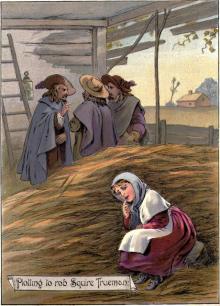 Goody Two-Shoes
Goody Two-Shoes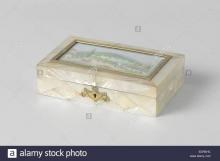 The Pearl Box
The Pearl Box And when you gone...
And when you gone... Stranger At The Other Corner
Stranger At The Other Corner My Young Days
My Young Days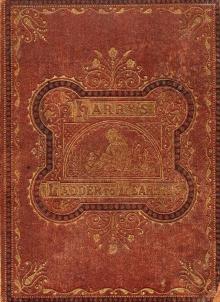 Harry's Ladder to Learning
Harry's Ladder to Learning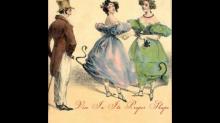 Vice in its Proper Shape
Vice in its Proper Shape_preview.jpg) Promise (the curse)
Promise (the curse)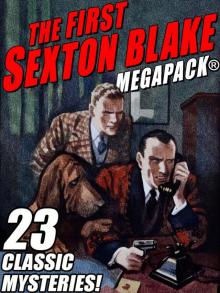 The First Sexton Blake
The First Sexton Blake Golden Moments
Golden Moments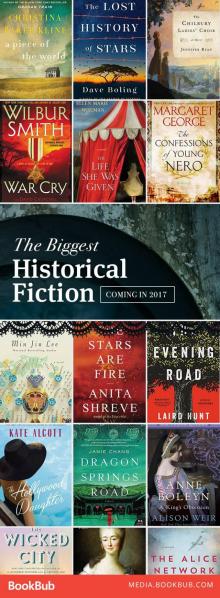 Hildebrand; or, The Days of Queen Elizabeth, An Historic Romance, Vol. 2 of 3
Hildebrand; or, The Days of Queen Elizabeth, An Historic Romance, Vol. 2 of 3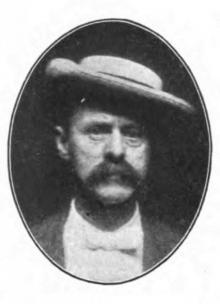 The Ice Queen
The Ice Queen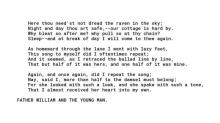 Phebe, the Blackberry Girl
Phebe, the Blackberry Girl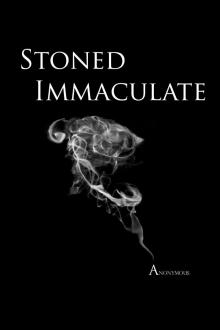 Stoned Immaculate
Stoned Immaculate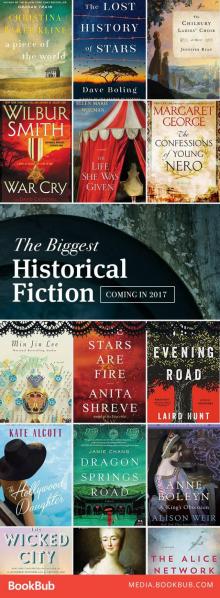 Hildebrand; or, The Days of Queen Elizabeth, An Historic Romance, Vol. 3 of 3
Hildebrand; or, The Days of Queen Elizabeth, An Historic Romance, Vol. 3 of 3 The Wonder of War on Land
The Wonder of War on Land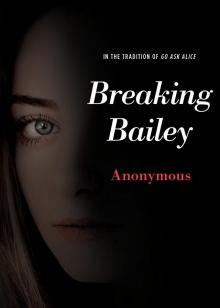 Breaking Bailey
Breaking Bailey The Little Girl Who Was Taught by Experience
The Little Girl Who Was Taught by Experience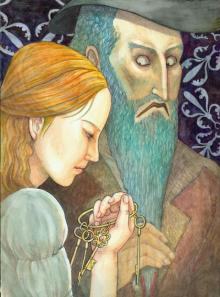 The Popular Story of Blue Beard
The Popular Story of Blue Beard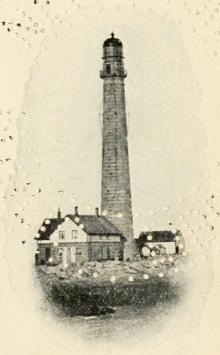 The Life Savers: A story of the United States life-saving service
The Life Savers: A story of the United States life-saving service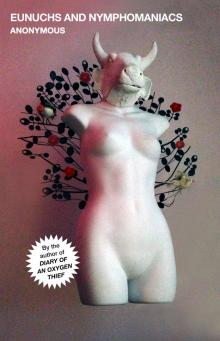 Eunuchs and Nymphomaniacs
Eunuchs and Nymphomaniacs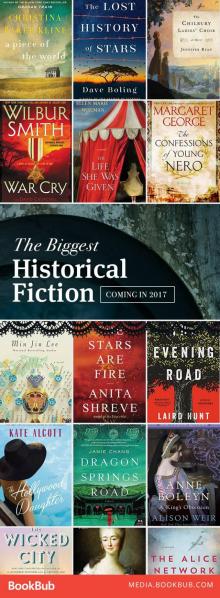 Hildebrand; or, The Days of Queen Elizabeth, An Historic Romance, Vol. 1 of 3
Hildebrand; or, The Days of Queen Elizabeth, An Historic Romance, Vol. 1 of 3 Kitty's Picnic, and Other Stories
Kitty's Picnic, and Other Stories Two Yellow-Birds
Two Yellow-Birds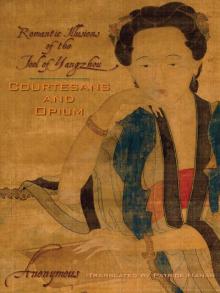 Courtesans and Opium
Courtesans and Opium The Emigrant's Lost Son; or, Life Alone in the Forest
The Emigrant's Lost Son; or, Life Alone in the Forest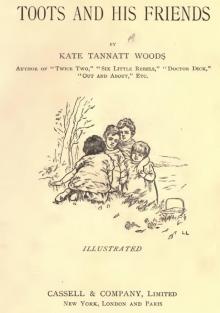 Toots and His Friends
Toots and His Friends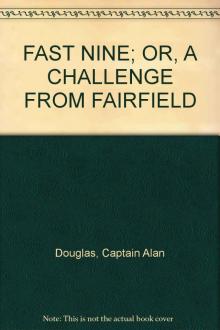 Fast Nine; or, A Challenge from Fairfield
Fast Nine; or, A Challenge from Fairfield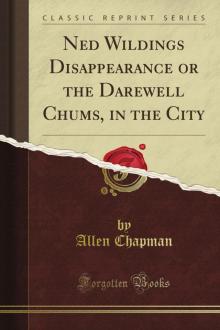 Ned Wilding's Disappearance; or, The Darewell Chums in the City
Ned Wilding's Disappearance; or, The Darewell Chums in the City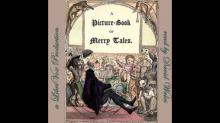 A Picture-book of Merry Tales
A Picture-book of Merry Tales The Trail of The Badger: A Story of the Colorado Border Thirty Years Ago
The Trail of The Badger: A Story of the Colorado Border Thirty Years Ago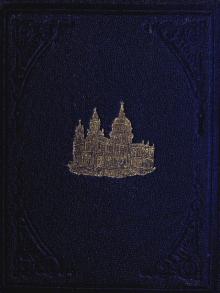 Peter Parley's Visit to London, During the Coronation of Queen Victoria
Peter Parley's Visit to London, During the Coronation of Queen Victoria The Rainbow, After the Thunder-Storm
The Rainbow, After the Thunder-Storm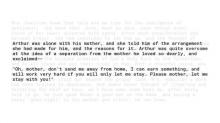 Arthur Hamilton, and His Dog
Arthur Hamilton, and His Dog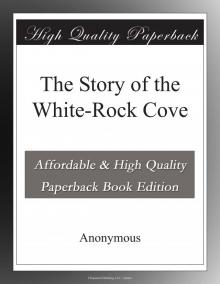 The Story of the White-Rock Cove
The Story of the White-Rock Cove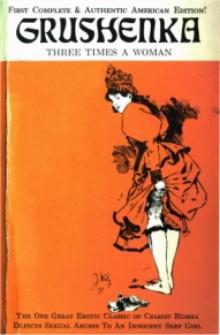 Grushenka. Three Times a Woman
Grushenka. Three Times a Woman Adventures of a Squirrel, Supposed to be Related by Himself
Adventures of a Squirrel, Supposed to be Related by Himself Falling in Love...Again
Falling in Love...Again The Colossal Camera Calamity
The Colossal Camera Calamity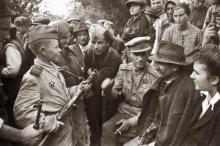 Child of the Regiment
Child of the Regiment Elimination Night
Elimination Night The Kingfisher Secret
The Kingfisher Secret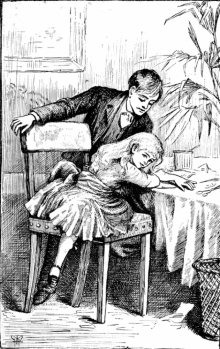 Left to Ourselves; or, John Headley's Promise.
Left to Ourselves; or, John Headley's Promise. The Island of Gold: A Sailor's Yarn
The Island of Gold: A Sailor's Yarn Adventures of Bobby Orde
Adventures of Bobby Orde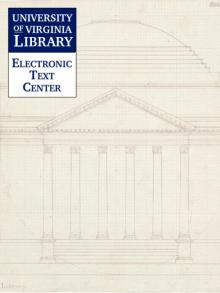 Twain, Mark: Selected Obituaries
Twain, Mark: Selected Obituaries When Love Goes Bad
When Love Goes Bad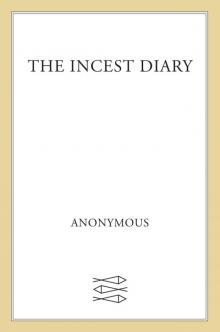 The Incest Diary
The Incest Diary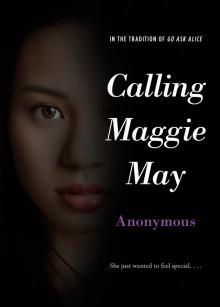 Calling Maggie May
Calling Maggie May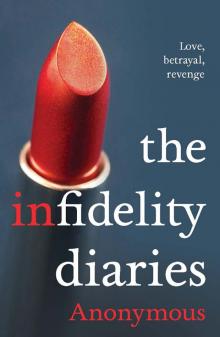 The Infidelity Diaries
The Infidelity Diaries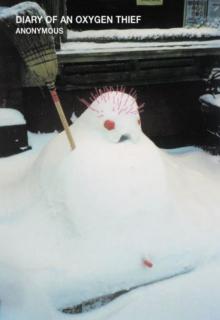 Diary of an Oxygen Thief (The Oxygen Thief Diaries)
Diary of an Oxygen Thief (The Oxygen Thief Diaries) ARABELLA
ARABELLA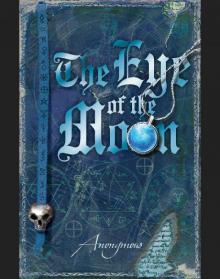 The Eye of the Moon
The Eye of the Moon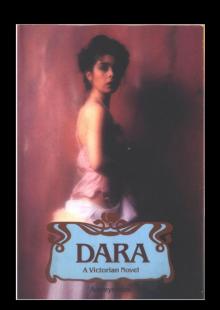 Dara
Dara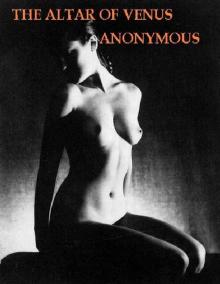 THE ALTAR OF VENUS: The Making of a Victorian Rake
THE ALTAR OF VENUS: The Making of a Victorian Rake The Book of Death
The Book of Death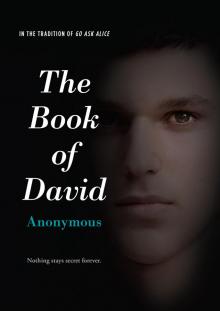 The Book of David
The Book of David The Devil's Graveyard
The Devil's Graveyard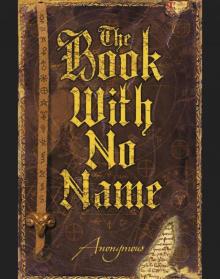 The Book With No Name
The Book With No Name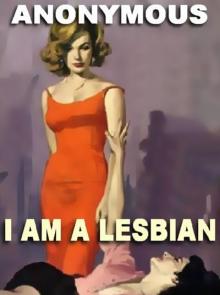 I Am A Lesbian
I Am A Lesbian Njal's Saga
Njal's Saga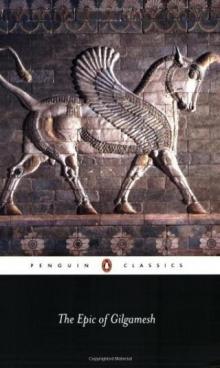 The Epic of Gilgamesh
The Epic of Gilgamesh Darling
Darling Tal, a conversation with an alien
Tal, a conversation with an alien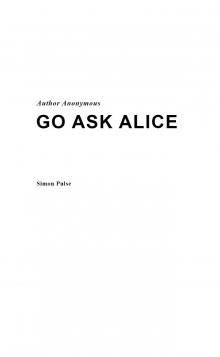 Go Ask Alice
Go Ask Alice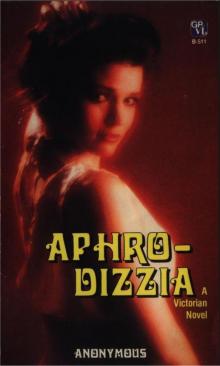 Aphrodizzia
Aphrodizzia The Campus Trilogy
The Campus Trilogy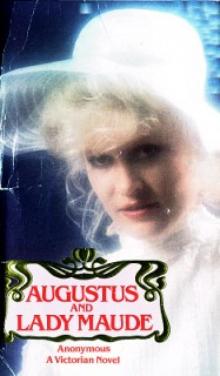 Augustus and Lady Maude
Augustus and Lady Maude Lucy in the Sky
Lucy in the Sky Sight Unseen
Sight Unseen Pleasures and Follies
Pleasures and Follies The Red Mohawk
The Red Mohawk A Fucked Up Life in Books
A Fucked Up Life in Books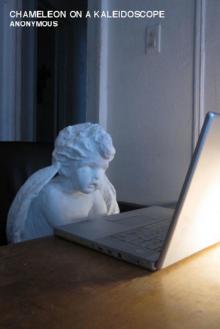 Chameleon On a Kaleidoscope (The Oxygen Thief Diaries)
Chameleon On a Kaleidoscope (The Oxygen Thief Diaries)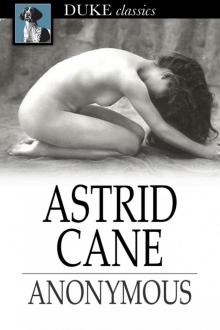 Astrid Cane
Astrid Cane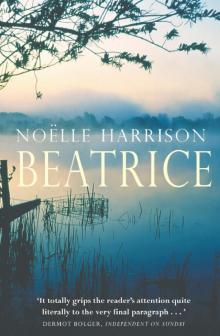 BEATRICE
BEATRICE The Song of the Cid
The Song of the Cid